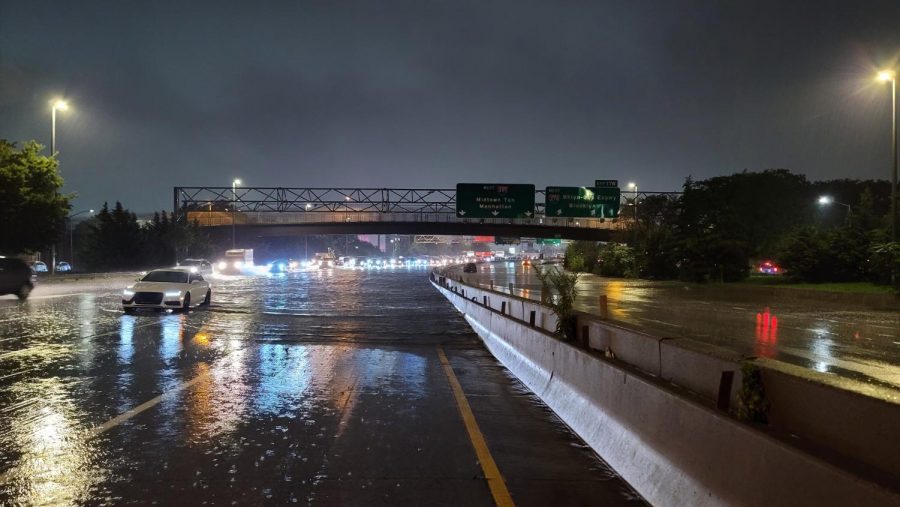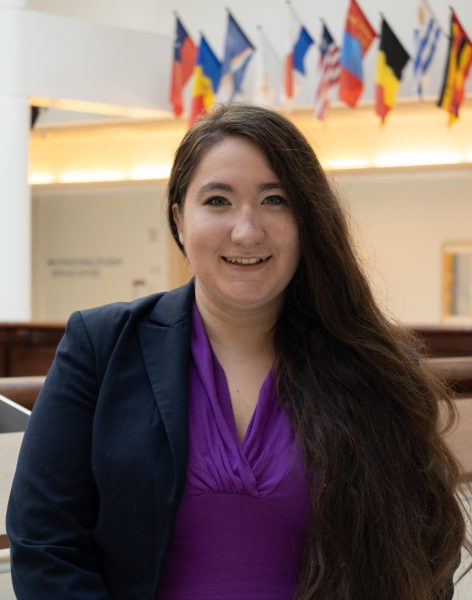New York City’s Hurricane Ida response missed the mark on helping people survive
September 24, 2021
The failed storm response to Hurricane Ida highlights the need for short-term and long-term emergency preparation to ensure the safety of New York City and its citizens.
Hurricane Ida left both financial and personal devastation in its wake. New York Gov. Kathy Hochul said that there was more than $50 million in damages, according to Reuters.
Even more horrific than the financial loss is the loss of life. “At least 13 people died, most of them drowning in basement apartments,” according to The Guardian.
It is impossible to fully comprehend what the victims of Hurricane Ida experienced, trapped in their homes and desperately trying to escape.
Actions could have and should have been taken to prevent this needless loss of life.
Those defending the city’s response argue that the unprecedented rainfall of more than three inches in an hour could not have been predicted.
However, as recent as “ Aug. 21, Central Park saw rainfall of 1.94 inches in an hour, a byproduct of Hurricane Henri,” The New York Times reported.
Most concerning is the fact that the city did not adapt its storm response and learn from the intense rainfall that occurred during Hurricane Henri.
As early as Aug. 27, the National Weather Service indicated that severe rainfall and a high probability of flooding would occur in New York City. Many New Yorkers received notifications on their cell phones accompanied by siren-like audio that warned of a potential state of emergency due to impending flash flooding.
New York City Mayor Bill de Blasio did not declare a state of emergency until after midnight on Sept. 2, after the storms’ devastation had already occurred.
In preparation for the hurricane, New York City should have initiated pre-storm evacuations and ordered the clearing of streets and subways. Emergency hotels and shelters should have been set up and communicated to people well in advance of the storm.
None of these actions were taken.
A pre-storm communication plan should have been initiated through television, radio, social media, email and additional city-sent cell phone alerts.
Furthermore, the City University of New York alert sent after the storm should have been sent to cancel classes before the storm’s projected arrival to limit the chance of students commuting during a dangerous weather event.
The New York Times reported that there is legislation with 38 sponsors to require the city to develop a plan to protect the city’s entire 520-mile shoreline. While cost is cited as a reason to delay the passage of this legislation, Hurricane Ida demonstrated the dire cost to life and property when action is delayed.
While some might claim that an earlier response could unnecessarily shut down business and create a negative economic impact, one day of reduction in sales seems a small price to pay when human lives are at stake.
Consider the increased negative impact if Hurricane Ida had hit mid-morning when classes and businesses were all operational.
How many more people would have been trapped in flooded subways and cars? How many more students of Baruch would have been trapped with no way of getting home?
The climate crisis makes extreme storms like Hurricane Ida inevitable and they demand immediate action.
“Since 1975 there has been a substantial and observable regional and global increase in the proportion of Cat 4-5 hurricanes of 25-30 percent per °C of anthropogenic (human-caused) global warming,” according to Yale Climate Connections,
One course of action is to establish an independent governing agency to ensure both short and long-term emergency plans are put into effect. The safety of those who work and live in New York City makes this imperative.








Sandy James • Jan 11, 2023 at 7:25 am
I definitely agree,I am a hurricane Ida survivor and live in New York city. Unfortunately I don’t live at home due to the disaster. It’s a year and 4 months and I still reside in a hotel because I can’t find suitable housing.
Hurricane Ida was a disaster in Louisiana as well as New York.
It’s hard to get help finding suitable housing in New York city. Some hurricane Ida survivors and family are still overwhelmed, because if they don’t have an emergency housing vouchers they are still stuck in hotels. I think it’s discrimination because we all are Hurricane survivors it should not matter if you have a emergency housing voucher.
Vouchers are vouchers this should be a equal opportunity.
Ambassadors and housing specialist should help all of us that’s displaced ,not just some of us. No matter what type of housing voucher you have.
Where is the Justice?